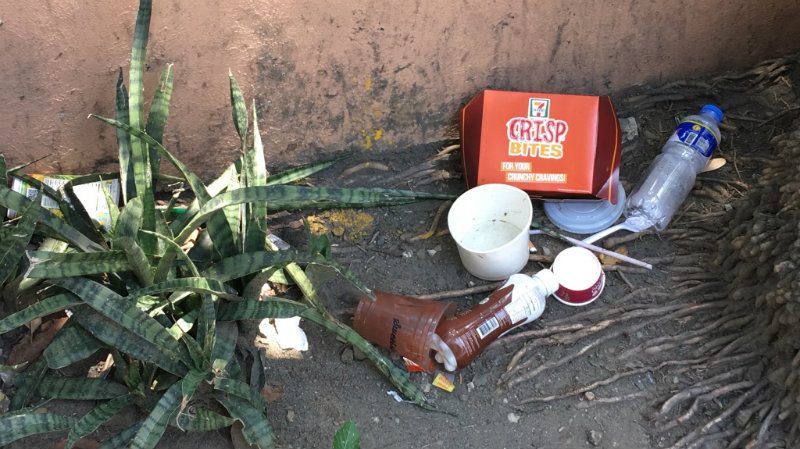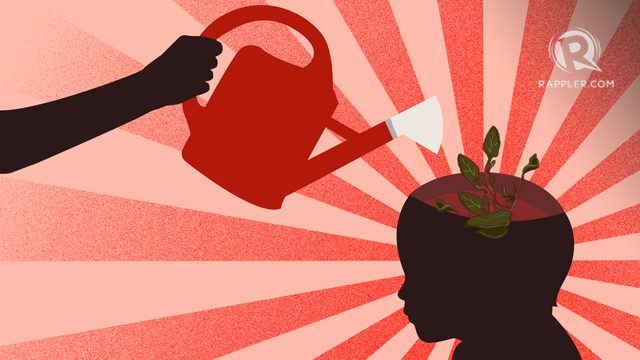SUMMARY
This is AI generated summarization, which may have errors. For context, always refer to the full article.

My 10-year-old son and I were recently browsing through the 2017 National Geographic Almanac for Kids and found that the population of New Zealand, with an area of 270,000 square kilometers, is 4.6 million, while the Philippines (300,000 sq km area) has a population of 103 million.
The two countries with relatively the same land mass, but the Philippines has 22 times more living people in it, nearly 13 million of them living in densely populated Metro Manila.
With each Filipina is expected to conceive an average of 3 children over the next 3 decades, the population is expected to reach 142 million by 2045.
“How can so many people fit?” my son asked. Good question.
Living in a growing economy where people are earning and consuming more, I witness the negative impacts of a middle-income city as I walk 100 meters from my home to work each morning. On the sidewalks and streets, I see crumpled paper and used plastic soda cups, cigarette butts, spilled food, spit, shopping carts left stranded behind a post.
More money doesn’t mean more people receive better education
One time I was driving home in slow traffic in front of a large mall. As I impatiently waited for us to move, I saw a passenger in a van in front of me nonchalantly throw out a plastic bag with fast food waste onto the middle of the road.
Whenever I take the footpath connecting the mall to a nearby hotel, abandoned food containers sit in the corners, and hundreds of cigarette stubs fit neatly in between the escalator’s finger-sized step plate grooves.
What’s going on? Aren’t we taught in school to dispose of waste in trash bins and not on the streets? Was there not a nationwide campaign to segregate waste?

I may have made the wrong assumption that more money means more people receive a better education. Apparently even something as basic as throwing your own rubbish in its proper bin is not fully ingrained in the minds of our people.
I wonder how many households separate their own waste according to paper, plastics, biodegradable and non-biodegradable whenever big plastic bags are left outside for collection.
Promoting individual responsibility
Cleaning up is everyone’s job. Filipinos should not and cannot rely on public officials to clean up the streets for them. Does responsibility end once we step outside our home?
With the expected growth in population, how much more of this waste will be left in the streets in coming years?
In my children’s schools, there are efforts such as quarterly collection of recyclables, and clean-as-you-go. But these attempts seem to amount only to mechanical efforts to attain a certain grade in conduct.

Perhaps this is why a lot of adults no longer apply what they learned in school – because there is nothing else to achieve. It’s simply the city cleaner’s job to sweep the litter away.
The evolution of a people should go hand-in-hand with economic growth and that begins within oneself. Otherwise we will be just another consumption-driven, soulless nation. As human beings, we are nature, not just a part of it.
As human beings, we are nature, not just a part of it
Older civilizations and indigenous tribes still have this consciousness, and maintain it by preserving and caring for the natural environment. With so much focus on economic development, we Filipinos seem to have largely forgotten this relationship and responsibility.
The Philippines is one of the 5 countries that dump the most plastic pollutants in the ocean. Pretty soon there will be more plastic and garbage in our oceans than fish. We need to change this now.
We need to go back to schools to re-educate youth about their relationship with the environment. We need discourage stores and restaurants from giving out plastics bags to customers.
We need to empower small businesses to use recycled products, and help them grow and distribute these products to the bigger corporations. We need to get governments to work with us to protect the environment.
I am 33, a millennial young mom with two kids, and I am calling out to those who think about these things, and want to see and be part of the change to do something about the place we live in. Who’s with me? – Rappler.com
Timmy Luistro is an Associate Project Analyst at the Southeast Asia Regional Department of the Asian Development Bank. This esssay first appeared on the Asian Development Blog.
Add a comment
How does this make you feel?
There are no comments yet. Add your comment to start the conversation.